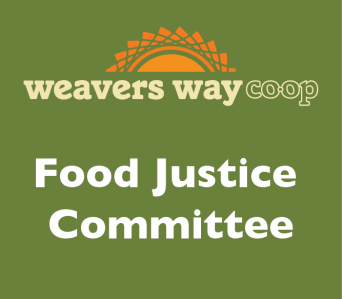
Food Justice Committee: Food Connect Bridges Gap Between Wasted and Wanted

If you’re like me, you may have had a fleeting thought or two about food waste: you’re careful about how much food you prepare at home, only take as much as you can eat from buffets and bring home doggie bags from all except the worst restaurant meals. Your conscience is pricked at the end of special events when you see how much food is left and wonder where it will end up. Then you head home and don’t give it a second thought.
Megha Kulshreshtha did give food waste a second thought. Heading to work, she would see the same hungry people day in and day out and also see platters of food being thrown away at conferences, as well as at restaurants and by other food purveyors. Being more inclined to take action, Megha came up with Food Connect, which is “bridging the gap between surplus food and hunger” by picking up surplus food and delivering it to homeless shelters.
Megha, an equity portfolio analyst by day, started by approaching restaurants. In 2014, she attended a StartUp Weekend in Philadelphia that brought her together with other entrepreneurial types. Her team’s project tested out the idea of putting a system in place to pick up surplus food and take it to shelters. They devised a way to manage the logistics of delivering the food to the proper shelter, since not all accept food or have the capacity for different sizes of delivery, being mindful of what the shelters needed and what time the deliveries would work best for them.
Food Connect went from select deliveries in a small part of the Philadelphia to being fairly well known in the area's food ecosystem. I met Megha at a Food Policy Advisory Council Anti-Hunger Committee meeting hosted by the SHARE food program, where she was describing her work to a very attentive group of food-justice advocates. The concept is deceptively simple: the Food Connect driver arrives, picks up food and takes it to a shelter. However, as the volume of donations increases, Megha and her team of volunteers are looking at ways to operate more efficiently and trying to make it easier to donate. With the Democratic National Convention in town this month, they are also looking at how to streamline the process of collecting fragmented donations. They are also planning to collaborate with SHARE and Philabundance in some way.
In case you were wondering at this point: At Weavers Way Chestnut Hill, food that is out of code (or about to be) is collected two or three times a week by the food bank at St. Vincent's in Germantown. Outdated food from Mt. Airy goes to Whosoever Gospel Mission, also in Germantown. Inedible vegetables and vegetable scraps from both stores go to Saul High School to be made into Henry Got Compost. (And in Mt. Airy, bruised and wilted vegetables are offered for sale at a discount before they're too far gone.) “If we have a really big donation, we get Philabundance involved,” said Chestnut Hill store manager Dean Stefano.
Megha wants potential donors (grocery stores, restaurants, dining halls, universities, etc.) to know that they can contact Food Connect directly if they have extra food; visit www.foodconnectgroup.com.
Surplus food should still be fresh and edible, as drivers make same-day deliveries to places that can use it immediately. Food Connect can always use extra volunteer drivers — one hour a week is all the commitment they ask.
